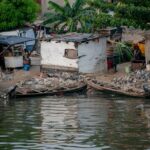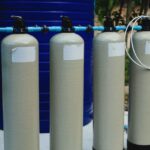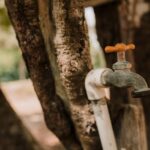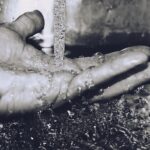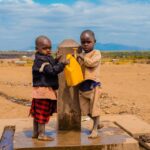Is It Safe to Drink Tap Water in Guinea-Bissau? A Guide to Clean Water Access
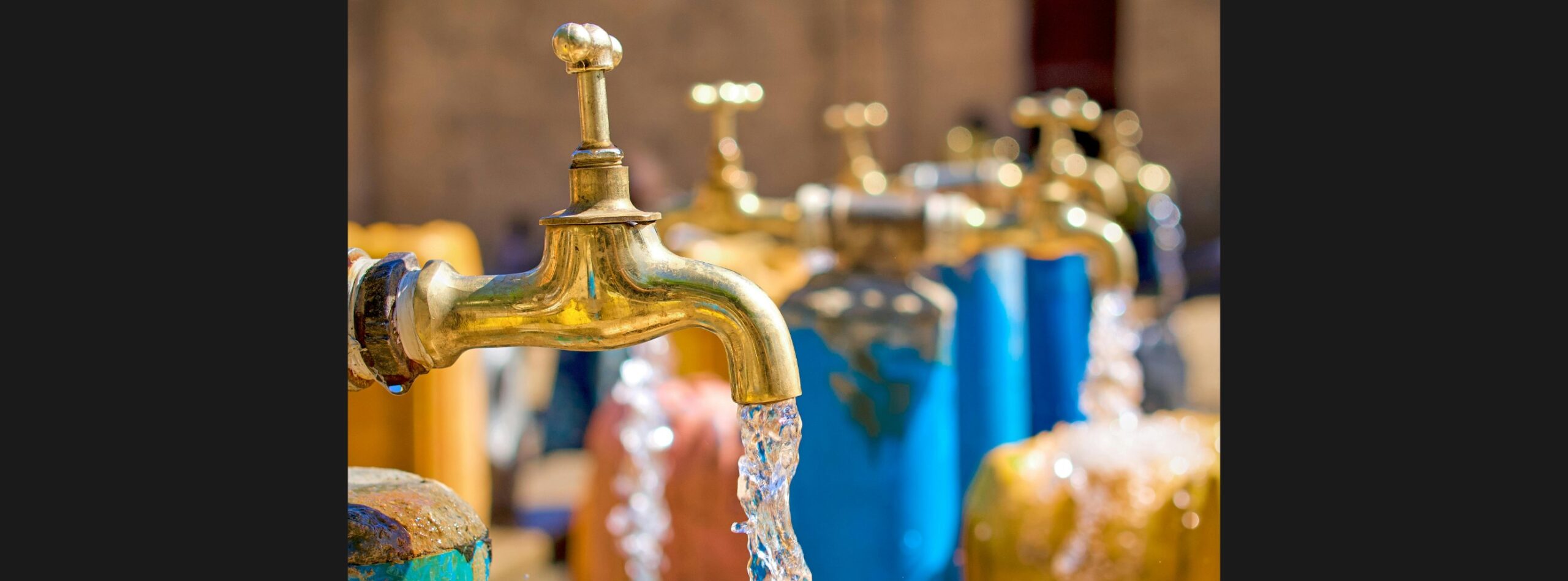
When you step into a new environment, one of the first things you might ask is, “Is the tap water safe to drink?” In many places, the answer is simple, but in Guinea-Bissau, it’s not so clear-cut.
For millions of people living in this West African country, access to clean and safe drinking water is far from guaranteed. In fact, it’s something many people have to think about every single day. Unsafe water is a major health risk, often leading to waterborne diseases like cholera, diarrhea, and typhoid – diseases that can affect anyone, but are especially dangerous for children.
Water safety isn’t just a matter of convenience. It’s about health, well-being, and giving people the chance to thrive. So, what’s the situation with tap water in Guinea-Bissau, and how can people stay safe? Let’s take a look.
Overview of Guinea-Bissau’s Water Situation
Water access in Guinea-Bissau is a complex issue. While some areas have made strides, the overall picture is still a challenge. According to UNICEF, 55% of water points and 82% of household water sources are contaminated with fecal bacteria.
In cities like Bissau, some homes are connected to the water supply, but that doesn’t always mean the water is safe to drink. Aging pipes, limited water treatment, and inconsistent supply mean that even tap water can be contaminated. For those in rural areas, the challenge is even greater – many rely on rivers, wells, or water vendors, often with no way of knowing whether it’s safe.
So, while some people in Guinea-Bissau might have access to water, it’s often a matter of treating or filtering it to make it safe for drinking. This makes water safety a constant concern for both urban and rural communities.
Is Tap Water Safe to Drink in Guinea-Bissau?
“Is the tap water safe to drink?” It’s a question that gets a complicated answer in Guinea-Bissau. In most cases, the short answer is no – tap water in Guinea-Bissau isn’t considered safe to drink without additional treatment.
While some areas in urban centers like Bissau have access to tap water, the quality is questionable. In fact, it’s not uncommon for water to be contaminated due to aging infrastructure, inconsistent maintenance, and lack of proper treatment. Tap water often contains harmful bacteria, parasites, or pollutants that can cause a range of waterborne diseases.
Health experts and local authorities often recommend that people avoid drinking directly from the tap. Boiling water, using water filters, or purchasing bottled water are the most common alternatives. These steps are essential to ensuring the water is free from harmful microorganisms and contaminants.
For visitors to Guinea-Bissau, it’s important to take precautions and avoid drinking tap water at all costs. Even if it looks clear, it’s best to assume that it may not be safe and opt for treated or bottled water instead.
What People Rely on for Drinking Water
In a country where tap water isn’t always safe, people in Guinea-Bissau rely on other sources to meet their drinking water needs. Whether they live in urban areas or rural villages, water is fetched, bought, or sometimes filtered to ensure it’s drinkable.
For urban dwellers in Bissau, water may come from vendors, but this often brings its own set of problems. Water sold by vendors may not be regulated, meaning it could come from sources that haven’t been tested for contamination. In some cases, people buy bottled water, but this can be expensive and isn’t always a long-term solution.
In rural areas, the situation is even more challenging. Many families rely on natural water sources like rivers, wells, or even hand-dug ponds. These sources aren’t always treated, and the risk of contamination is high, especially in areas where sanitation systems are lacking.
To ensure their water is safe, many people in both urban and rural areas boil their water, use basic filtration systems, or even add chlorine to disinfect it. These methods may not guarantee 100% safety, but they help reduce the risks associated with drinking untreated water.
How Waterborne Diseases Affect Guinea-Bissau
When water isn’t safe to drink, the risks go beyond just inconvenience – it can lead to serious health problems. In Guinea-Bissau, waterborne diseases are a common threat due to the reliance on unsafe water sources. These diseases include cholera, typhoid fever, and diarrheal diseases, which are caused by harmful bacteria or parasites that often make their way into water supplies.
Cholera, in particular, is a serious concern in many parts of the country. It spreads rapidly in areas where sanitation and water treatment are limited, and the consequences can be deadly if not treated promptly. Typhoid fever, another common waterborne disease, is also spread through contaminated water and can cause prolonged illness, high fever, and abdominal pain.
Children are especially vulnerable to these diseases. The World Health Organization (WHO) reports that unsafe water and poor sanitation contribute significantly to childhood deaths in developing countries. For parents in Guinea-Bissau, the constant worry of whether their children are drinking safe water is a real challenge.
This is why improving water safety and access to clean water is so important. Not just for convenience, but to prevent the spread of these dangerous diseases. Every step toward improving water access, whether it’s providing better sanitation or building more reliable water systems, has the potential to save lives.
What’s Being Done to Improve Water Access in Guinea-Bissau
Despite the challenges, there are efforts underway to improve water access and quality in Guinea-Bissau. The government, alongside NGOs and international organizations, is working on several initiatives aimed at addressing the country’s water crisis.
One important project is the construction of new wells in rural areas. These wells can provide a more reliable and safer water source for communities that are currently relying on unsafe rivers and hand-dug ponds. By drilling deeper wells and installing filtration systems, organizations hope to reduce contamination and provide communities with safer drinking water.
Additionally, there’s a push for better sanitation practices to ensure that water sources aren’t contaminated by waste. Building proper latrines, improving waste management systems, and educating communities on hygiene are all part of efforts to reduce the spread of waterborne diseases.
In urban areas like Bissau, the focus is on upgrading the water infrastructure. Some projects aim to repair and modernize aging water pipelines to prevent leaks and contamination. This includes ensuring that water treatment plants are functioning effectively so that tap water is safe for consumption.
Aqua Maya, while still in the early stages of its work in the region, is looking to support similar initiatives by collaborating with local communities and organizations to improve both access to clean water and awareness of water safety.
While the road ahead is long, these efforts offer hope. Small changes in water access and treatment can have a big impact on public health and improve the quality of life for thousands of people.
How Can You Help Improve Water Access in Guinea-Bissau?
While major organizations, governments, and local communities work together to improve water access in Guinea-Bissau, everyone can play a part in supporting these efforts. If you’re passionate about water access, there are a few practical ways you can help make a difference.
First, consider supporting NGOs working in Guinea-Bissau and other regions facing similar challenges. By donating to organizations like Aqua Maya, which is dedicated to improving water access in West Africa, you can directly contribute to projects aimed at building sustainable water solutions. Your support helps fund the installation of wells, water treatment systems, and sanitation education programs – all crucial elements in the fight against waterborne diseases.
Another way to get involved is by raising awareness. Spread the word about the water crisis in Guinea-Bissau, whether it’s on social media, through local community groups, or even in your workplace. The more people understand the issue, the more pressure there will be on governments and international bodies to act.
You can also get creative with fundraising. Host a charity event or start a campaign to raise money for water projects. Even small contributions can add up and make a big impact when put toward life-saving projects.
Every little bit helps, and whether it’s through donations, raising awareness, or simply sharing information, you can be a part of the solution to improve water access and health in Guinea-Bissau.
Conclusion
The challenges surrounding water access in Guinea-Bissau are complex, but they are not impossible to overcome. With continued efforts from local communities, government initiatives, and international organizations like Aqua Maya, the country is steadily making progress toward providing safer water for all its citizens.
From improving infrastructure in urban areas to building sustainable water sources in rural communities, every step taken brings Guinea-Bissau closer to a future where clean, safe water is a basic right, not a luxury. But this is a journey that requires ongoing support, from both local and global communities.
The question may still linger: is tap water in Guinea-Bissau safe to drink? Right now, the answer remains a no, but with continued dedication and action, a cleaner, healthier future for Guinea-Bissau’s water access is within reach. Together, we can make that future a reality.
Sources
1. https://www.unicef.org/guineabissau/child-survival-and-development

